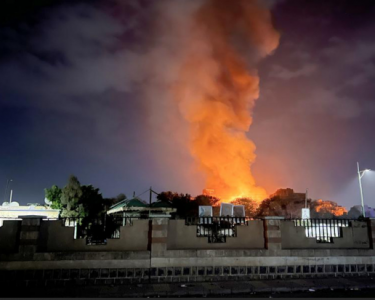
Cairo, March 3 (NNN-TELESUR) – Egypt released award-winning photojournalist Mahmoud Abu Zeid who was imprisoned since 2013 for covering army crackdown on protesters.
Egyptian authorities released a photojournalist Monday who was imprisoned in 2013 for covering a protest that ended with security forces killing hundreds of protesters.
Mahmoud Abu Zeid, also known as Shawkan, after being released, posted a picture on Twitter with the hashtag “hello asphalt,” a phrase used by freed political prisoners. “I can’t describe how I feel … I am free,” he said.
“He was released at 6 am (04:00 GMT) from the Al-Haram police station (near the Giza pyramids) and is currently at home,” his lawyer Taher Aboul Nasr told reporters.
Shawkan was imprisoned along with 739 supporters of overthrown President Mohamed Morsi.
Shawkan was charged with belonging to a banned group and possessing firearms. He was sentenced to five years in prison last September in a mass trial which saw 75 people sentenced to death and more than 600 others to jail terms.
He was supposed to spend five years in prison but got out because he already spent that time before being sentenced.
UNESCO awarded him its 2018 Press Freedom Prize and said his detention was an abuse of human rights.
Amnesty International said in a statement Monday that Shawkan “should never have been forced to spend a single minute behind bars – let alone five and a half years”.
He vowed to continue with his work, saying, “All journalists are at risk of being arrested or killed while doing their work. I am not the first and I will not be the last.”
The violent breakup of the 2013 sit-in was a key moment in the turmoil that followed the 2011 uprising, as the military led by Abdel Fattah al-Sisi moved to assert its control after forcing out Mursi, Egypt’s first freely elected head of state.
Sisi was elected president the following year and has overseen a sweeping crackdown on dissent in which thousands of Islamist opponents, as well as scores of liberal activists and journalists, have been imprisoned. Sisi and his supporters say they needed to stabilize the country following the upheaval triggered by the 2011 uprising.




